Innocent Habits That Secretly Trigger Acid Reflux
Acid reflux, a common ailment affecting millions globally, often manifests as a burning sensation in the chest or throat, commonly known as heartburn. While many attribute this discomfort to specific foods or stress, everyday habits can surprisingly ignite this condition without us realizing it. The journey to understanding acid reflux involves unraveling the subtle nuances of our daily routines that inadvertently exacerbate this digestive disorder. That's why we've expanded our list of surprising ways everyday habits secretly contribute to acid reflux and offers practical strategies to tame them, ensuring a more comfortable and reflux-free life.
1. The Role of Posture in Acid Reflux

One of the most overlooked contributors to acid reflux is posture. Slouching or reclining immediately after meals can cause stomach acid to travel back up the esophagus, leading to discomfort. When we sit or lie in a position that compresses the abdomen, it increases pressure on the stomach, pushing the acid upwards. Maintaining an upright posture for at least an hour post-meal can significantly reduce the risk of reflux. Additionally, investing in ergonomic furniture and being mindful of our sitting habits can help maintain proper posture, thus reducing the frequency of acid reflux episodes.
2. The Impact of Late-Night Eating

Late-night snacking or dining can be a delightful indulgence, yet it is a notorious trigger for acid reflux. Eating close to bedtime allows gravity to work against digestion, as lying down can cause the stomach contents to press against the lower esophageal sphincter (LES), the muscle that keeps acid in the stomach. To mitigate this, it is advisable to have the last meal at least three hours before sleeping. This practice not only aids in digestion but also ensures that the LES is not overwhelmed, thereby reducing the likelihood of nighttime reflux.
3. The Caffeine Conundrum

Caffeine, a staple in many people's daily routines, can be a hidden culprit in triggering acid reflux. Found in coffee, tea, and certain sodas, caffeine relaxes the LES, allowing stomach acid to escape into the esophagus. While it might be unrealistic to eliminate caffeine entirely, moderating intake and opting for low-acid coffee or herbal teas can help manage symptoms. Understanding individual tolerance levels and making mindful choices about caffeine consumption can play a crucial role in controlling acid reflux.
4. Stress and Its Silent Influence

Stress is an omnipresent part of modern life, and its impact on acid reflux is often underestimated. High stress levels can lead to behaviors such as overeating, smoking, or consuming alcohol, all of which can trigger reflux. Moreover, stress itself can increase stomach acid production and slow down digestion. Incorporating stress-management techniques such as mindfulness, yoga, or regular exercise can not only improve overall well-being but also significantly reduce acid reflux episodes. Recognizing stress as a trigger is the first step towards managing its effects on digestive health.
5. The Connection Between Obesity and Acid Reflux

Excess body weight is a well-documented risk factor for acid reflux. The additional weight, particularly around the abdomen, can increase pressure on the stomach, causing acid to back up into the esophagus. Weight loss through a balanced diet and regular exercise can alleviate this pressure and reduce reflux symptoms. It is important to approach weight loss gradually and sustainably, focusing on long-term lifestyle changes rather than quick fixes. By maintaining a healthy weight, individuals can significantly lower their risk of experiencing acid reflux.
6. Smoking: A Catalyst for Acid Reflux

Smoking is a major lifestyle factor that exacerbates acid reflux. Nicotine in cigarettes relaxes the LES, making it easier for stomach acid to escape into the esophagus. Furthermore, smoking increases stomach acid production and reduces saliva, which is a natural acid neutralizer. Quitting smoking not only benefits overall health but also significantly reduces the frequency and severity of acid reflux symptoms. Support groups, nicotine replacement therapies, and professional counseling can provide the necessary assistance for those looking to quit smoking.
7. The Influence of Alcohol on Digestion

Alcohol consumption is another common habit that can trigger acid reflux. Alcohol relaxes the LES and can also irritate the esophagus lining, making it more susceptible to acid damage. Moderation is key; limiting alcohol intake and avoiding it close to bedtime can help manage reflux symptoms. Opting for less acidic alcoholic beverages and ensuring adequate hydration can also mitigate the effects of alcohol on acid reflux. Understanding personal triggers and making informed choices can significantly improve digestive health.
8. The Hidden Dangers of Carbonated Beverages
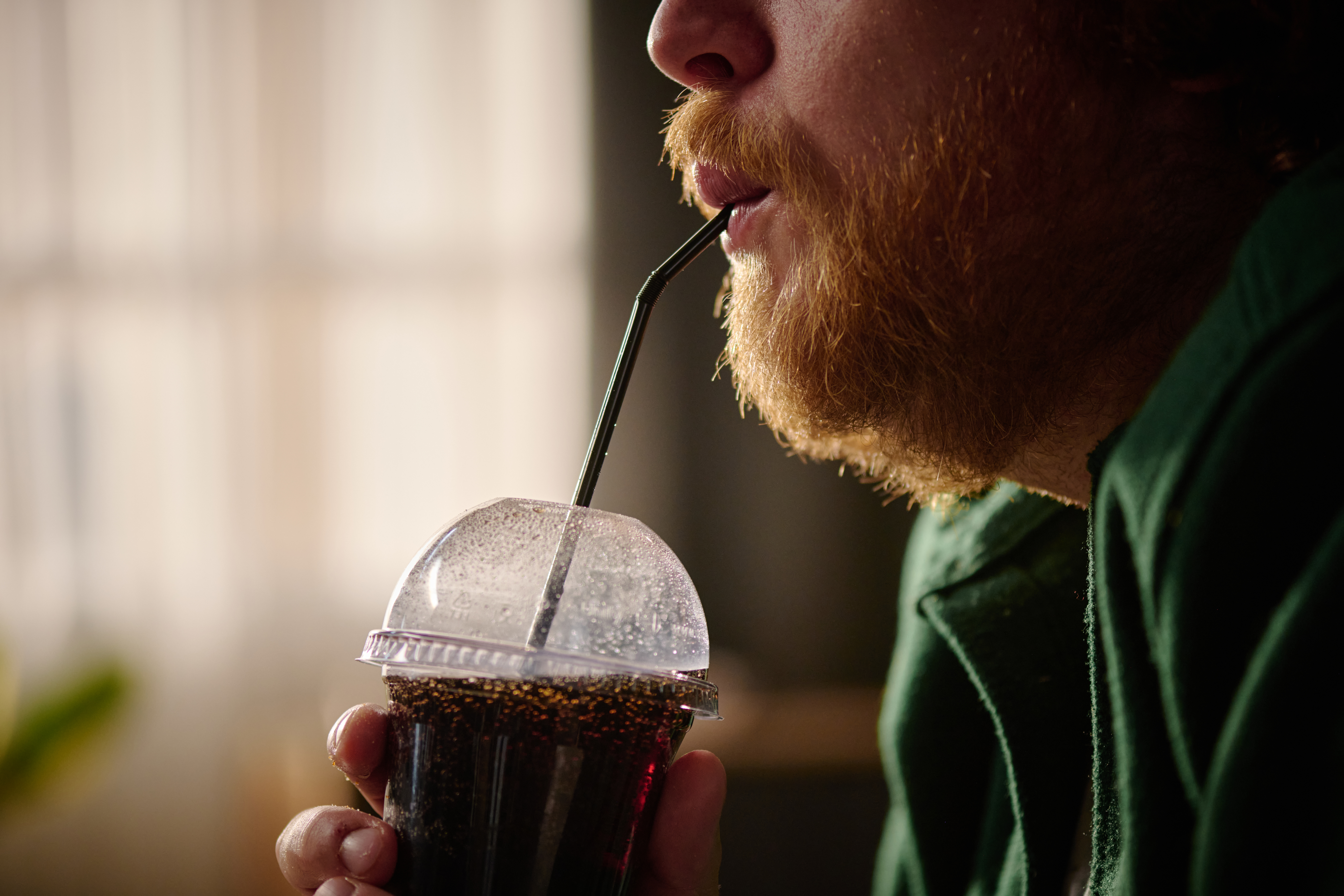
Carbonated beverages, often perceived as harmless, can be a surprising trigger for acid reflux. The bubbles in these drinks expand in the stomach, increasing pressure and promoting acid reflux. Additionally, many carbonated drinks contain caffeine and acids that can further aggravate the condition. Replacing carbonated beverages with still water or herbal teas can reduce the risk of reflux. Being mindful of drink choices and their effects on the digestive system can lead to a noticeable improvement in reflux symptoms.
9. The Role of Dietary Choices

Certain foods are well-known triggers for acid reflux, including spicy foods, citrus fruits, tomatoes, chocolate, and fatty or fried foods. These foods can relax the LES or increase stomach acid production. Identifying and avoiding personal trigger foods is essential in managing acid reflux. Keeping a food diary can help pinpoint specific foods that cause symptoms. Incorporating more alkaline foods, such as bananas, melons, and leafy greens, into the diet can help neutralize stomach acid and reduce reflux occurrences.
10. The Importance of Meal Size and Timing
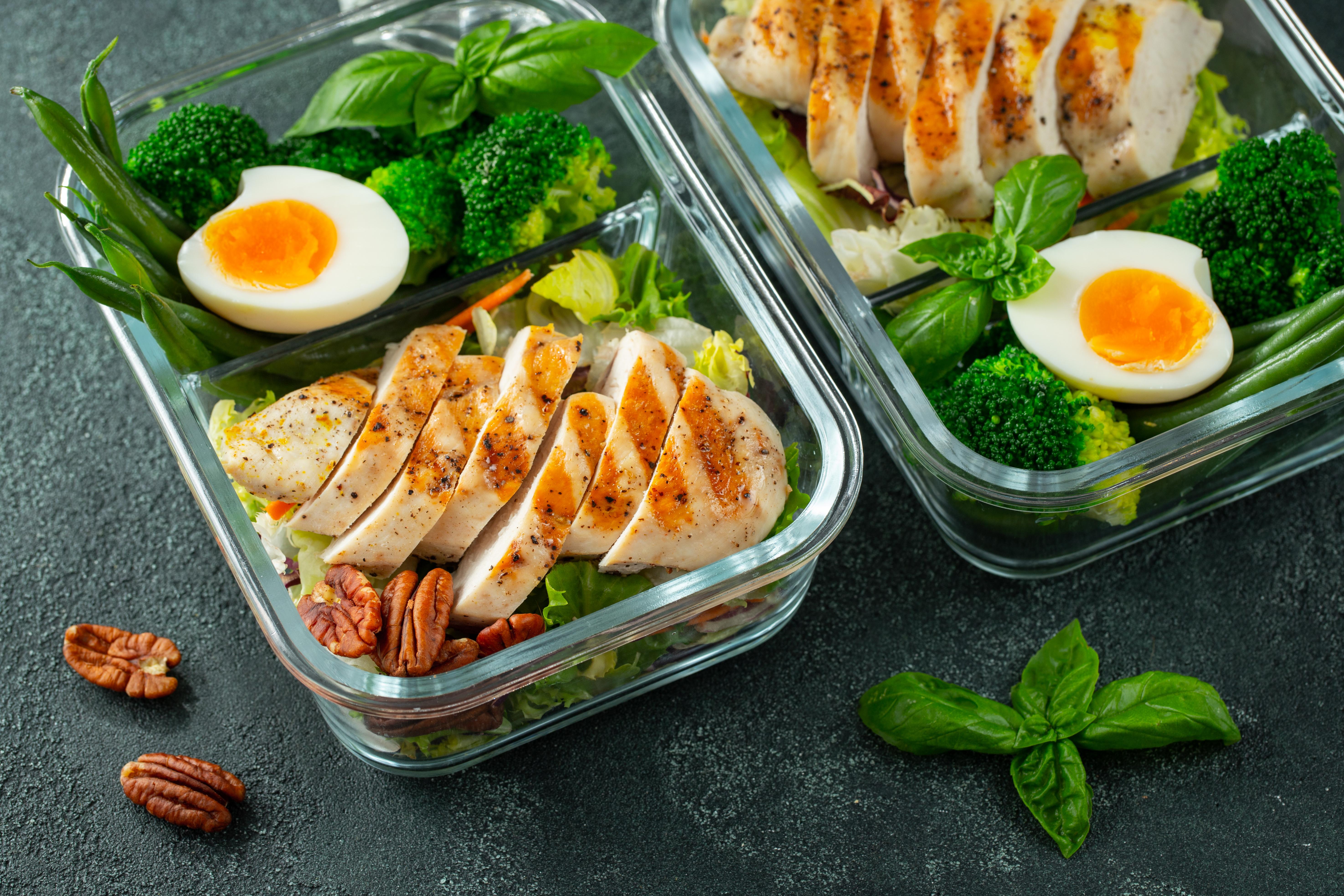
Large meals can overwhelm the digestive system, increasing the likelihood of acid reflux. Eating smaller, more frequent meals can prevent excessive stomach distension and reduce pressure on the LES. Additionally, being mindful of meal timing and ensuring meals are consumed at a relaxed pace can aid digestion. Chewing food thoroughly and allowing time for proper digestion can significantly reduce the risk of reflux. By adopting mindful eating practices, individuals can improve their digestive health and minimize reflux episodes.
11. Overly Tight Clothing: The Silent Squeeze

What you wear can impact your digestive health, especially if your clothes are too tight. Belts, shapewear, and form-fitting pants can constrict your abdomen, putting extra pressure on your stomach. This increased pressure can easily push stomach acid back up into the esophagus, triggering a reflux episode. Opting for looser, more comfortable clothing, especially after a large meal, can make a significant difference. Choosing an outfit that allows your body to expand naturally is a simple, yet effective, strategy to prevent a painful bout of heartburn.
12. Exercising Too Soon After Eating: The Post-Meal Peril

While exercise is great for overall health, the timing of your workout can be a hidden trigger for acid reflux. High-intensity exercises like running, jumping, or even weightlifting can put pressure on the stomach and cause its contents to slosh around. This can force acid up into the esophagus, leading to an uncomfortable burning sensation. To avoid this, it’s best to wait at least two to three hours after eating before engaging in a strenuous workout. A gentle walk or light stretching can aid digestion without causing any reflux issues.
13. Chewing Gum: The Air Bubble Trap

Chewing gum might seem like a harmless habit, but it can secretly contribute to acid reflux in a few ways. First, chewing stimulates the production of more saliva, which can be a good thing as it helps neutralize stomach acid. However, the act of chewing also causes you to swallow more air. This trapped air can create pressure inside your stomach, which can easily force acid up into your esophagus. While some studies suggest certain types of gum can help, it's a good idea to limit or avoid gum chewing if you’re prone to reflux.
14. Bending Over: The Quick-Change Reflex

It’s a common, everyday movement—bending over to tie your shoes, pick something up off the floor, or even just lean down to pet a dog. But for someone with acid reflux, this simple act can be a powerful trigger. When you bend at the waist, you compress your abdomen and change the orientation of your stomach, allowing its contents to easily flow back toward the esophagus. To avoid this, try to squat or kneel when you need to reach something on the ground. A small change in movement can lead to a big reduction in symptoms.
15. The Overlooked Role of Water Intake

It might seem counterintuitive, but both too little and too much water can impact acid reflux. Dehydration can lead to more concentrated, acidic stomach contents, while drinking a large amount of water with a meal can dilute stomach acid and increase the volume in your stomach, both of which can lead to reflux. The key is balance. Instead of chugging a large glass of water with a meal, sip small amounts throughout the day. This keeps you hydrated without overwhelming your digestive system, helping to maintain a healthy stomach acid balance.
16. The Sleep Position Predicament

The way you sleep can be a crucial, yet often ignored, factor in managing acid reflux. Lying flat on your back can cause stomach acid to pool and easily flow back into the esophagus, especially if you’ve eaten close to bedtime. The most effective sleep position is to elevate the head of your bed by about six to eight inches, using a foam wedge or risers under the bedposts. This uses gravity to your advantage, keeping stomach contents where they belong. Sleeping on your left side can also help, as it positions your stomach below your esophagus, further reducing the chance of acid creeping up.
17. The Sneaky Side Effects of Mints and Peppermint

While many people turn to mints for fresh breath or to soothe an upset stomach, peppermint is a well-known trigger for acid reflux. The compound menthol, which gives peppermint its distinct flavor, is a natural muscle relaxant. This effect, unfortunately, extends to your lower esophageal sphincter (LES), the valve that keeps stomach acid from escaping. When the LES relaxes, acid can easily reflux back into your esophagus, causing that familiar burning sensation. It's best to avoid peppermint-flavored gum, tea, and candies if you're prone to heartburn.
18. Over-the-Counter Pain Relievers

Many people don't realize that common over-the-counter pain relievers can be major culprits behind acid reflux. Nonsteroidal anti-inflammatory drugs (NSAIDs) like ibuprofen (Advil) and naproxen (Aleve) can directly irritate the lining of the stomach and esophagus. They can also inhibit prostaglandins, compounds that help protect the stomach lining from acid. This dual effect can make you more susceptible to heartburn. If you frequently rely on these medications, it's worth discussing alternatives with your doctor, such as acetaminophen (Tylenol), which is generally considered a safer option for your stomach.
19. The Hidden Habit of Snoring or Sleep Apnea

Snoring is a common issue, but when it's linked to a condition like sleep apnea, it can be a significant—and surprising—trigger for acid reflux. The forceful inhalation that occurs when a person gasps for air during a sleep apnea episode can create a strong negative pressure in the chest. This negative pressure can pull stomach acid up into the esophagus. Treating the underlying sleep disorder with lifestyle changes or a CPAP machine can not only improve sleep quality but also dramatically reduce the frequency and severity of your acid reflux symptoms.
20. The Unsuspecting Culprit: Prescription Medications

It’s not just over-the-counter meds; many common prescription drugs can cause or worsen acid reflux as a side effect. Medications for high blood pressure, asthma, osteoporosis, and even certain antidepressants can relax the LES, increase stomach pressure, or slow down digestion. For example, some calcium channel blockers used for blood pressure relax the LES. If you've recently started a new medication and noticed an increase in heartburn, talk to your doctor. They may be able to suggest an alternative drug or a different approach to help you manage both conditions without compromising your health.
21. The Temperature of Your Beverages

The temperature of what you drink can be a sneaky trigger for acid reflux. Sipping on extremely hot or cold beverages can cause a shock to your digestive system, leading to the relaxation of the lower esophageal sphincter (LES). This can allow stomach acid to creep back up into the esophagus, causing a burning sensation. While it’s tempting to chug an ice-cold drink on a hot day or sip a scalding cup of tea in the morning, it's best to consume beverages at a moderate, lukewarm temperature to prevent any sudden shock to your system.
22. Eating Too Quickly

In our fast-paced world, many of us are guilty of eating too quickly. However, this habit is a significant contributor to acid reflux. When you eat too fast, you swallow more air, which can cause bloating and increase pressure in your stomach. This pressure can easily force acid up into your esophagus. Additionally, eating too quickly can cause you to not chew your food thoroughly, which puts a greater strain on your digestive system. Taking the time to chew your food slowly and deliberately can help your body digest food more efficiently, reducing the risk of acid reflux.
23. Wearing Dentures

If you wear dentures, your oral health can impact your risk of acid reflux. Ill-fitting dentures can cause you to swallow more air while eating, which can increase the pressure in your stomach. This pressure can force stomach acid up into your esophagus, leading to heartburn and discomfort. Additionally, dentures can affect your ability to chew your food thoroughly, which can put a greater strain on your digestive system. Ensuring that your dentures are properly fitted and that you take the time to chew your food thoroughly can help you avoid this surprising trigger.
24. The Act of Talking While Eating

Multitasking at the dinner table can be a real trigger for acid reflux. When you talk while eating, you often swallow more air, which can increase the pressure in your stomach. This pressure can force stomach acid up into your esophagus, leading to heartburn and discomfort. Additionally, talking while eating can cause you to not chew your food thoroughly, which can put a greater strain on your digestive system. To avoid this, try to focus on your food while you eat and save the conversation for after the meal. This simple habit can make a significant difference in your digestive health.
25. Raw Vegetables
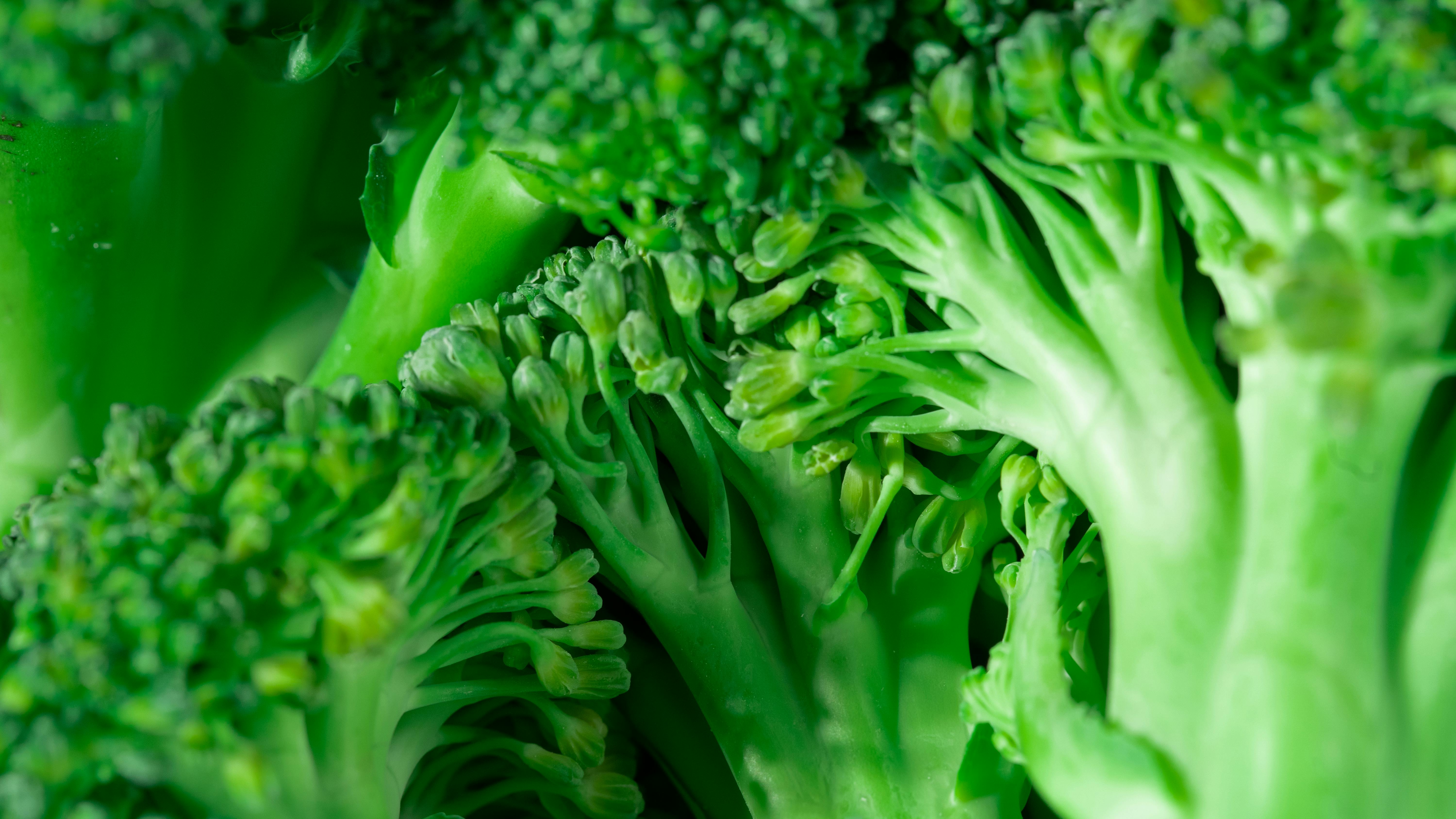
While raw vegetables are incredibly healthy, some can be problematic for those with acid reflux. These vegetables can be difficult to digest, leading to fermentation in the stomach. This fermentation process produces gas and bloating, which increases pressure in the stomach and can force acid up into the esophagus. For a reflux-friendly alternative, try cooking your vegetables. Steaming or sautéing vegetables can make them easier to digest while still preserving their nutrients. This is especially important for vegetables like broccoli, cauliflower, and cabbage.
26. The Hot Shower or Bath Habit

While a hot shower or bath is a great way to unwind, the heat can cause a surprising reaction in your body. When your body is exposed to significant heat, blood vessels in the skin and extremities dilate. This can redirect blood flow away from the digestive tract, slowing down the digestive process and leaving food sitting in your stomach for longer. The longer food remains undigested, the more opportunity there is for stomach pressure to build, which can force acid back up into the esophagus. To avoid this, try to wait at least an hour after eating before taking a hot bath or shower.
27. Loosening Your Belt After a Meal

It might feel like a relief to unbuckle your belt after a big meal, but this simple act can actually trigger a reflux episode. When your stomach is full and you loosen a tight belt, the sudden release of pressure can cause a rush of stomach acid to flow upward. Your belt might have been providing some pressure on the lower esophageal sphincter, holding the acid in place. When that pressure is released, it can be a quick and unpleasant surprise. Instead of loosening your belt, try to practice portion control and avoid eating until you’re uncomfortably full.
28. The Vaping and E-Cigarette Trend

The nicotine in traditional cigarettes is a well-known trigger, but the same holds true for vaping and e-cigarettes. Nicotine relaxes the lower esophageal sphincter, making it easier for stomach acid to escape. Even nicotine-free vaporizers can be an issue. The constant inhalation of vapor can cause you to swallow more air, which, as we mentioned, increases pressure in the stomach and pushes acid upward. The chemicals and flavorings in e-liquids can also be irritants. For many, switching to vaping doesn't solve their reflux—it just changes the source of the problem.
29. Ignoring an Impending Cough

A persistent cough is an irritating but often overlooked habit that can silently worsen acid reflux. The forceful action of coughing puts intense pressure on your abdominal muscles and your stomach. This sudden, jarring pressure can easily force stomach acid up into your esophagus. This creates a vicious cycle where reflux can trigger a cough, and the cough then makes the reflux worse. If you have a persistent cough and are prone to heartburn, it's essential to address the cough itself, as it could be a primary driver of your reflux.
30. The Unspoken Culprit: Wearing a Tight Bra

For many women, a bra that is too tight around the ribcage or under the bust line can be an unexpected trigger for acid reflux. Just like tight clothing around the abdomen, a constrictive bra can place pressure on the stomach and the lower esophageal sphincter. This constant squeeze can make it easier for stomach acid to creep back up into the esophagus, leading to heartburn and discomfort. Make sure to wear a bra that fits properly, especially one that doesn't leave a red mark or feel uncomfortably tight around your ribcage after a few hours.
31. The Silent Saboteur: Poor Oral Hygiene

It might seem unrelated, but the state of your mouth can surprisingly impact acid reflux. A buildup of bacteria from plaque and tartar can lead to a more acidic environment in the mouth, and some of this bacteria can even travel down into the esophagus. Additionally, gum disease can cause inflammation that may subtly affect the entire digestive tract. Practicing good oral hygiene, including brushing twice a day and flossing, can help maintain a balanced oral environment and reduce a potential source of irritation that could exacerbate reflux symptoms.
32. The Impact of Your Voice

Using a strained or loud voice for long periods, such as when giving a presentation, singing, or yelling, can put pressure on the diaphragm and chest cavity. This pressure can compress the stomach and force acid up into the esophagus. People who rely on their voice professionally, like singers or public speakers, are particularly susceptible to this. Taking frequent breaks, practicing deep-breathing exercises, and using proper vocal techniques can help reduce this strain and minimize the risk of reflux.
33. The Unseen Threat of Secondhand Smoke

Even if you don't smoke yourself, exposure to secondhand smoke can be a trigger for acid reflux. The chemicals and irritants in cigarette smoke can relax the lower esophageal sphincter (LES) and reduce saliva production, both of which are key for preventing reflux. The smoke also irritates the lining of the esophagus, making it more sensitive to stomach acid. Avoiding exposure to secondhand smoke is a simple yet effective way to protect your digestive health and reduce the risk of heartburn.
34. The Post-Meal Nap Problem

While a brief nap after a meal might feel refreshing, it can be a significant trigger for acid reflux. Lying flat, even for a short period, can allow stomach acid to flow back up into the esophagus. This is especially true if you've had a large or fatty meal. If you need to rest, try to stay in an upright position or recline at an angle. To avoid this altogether, plan your naps for at least two to three hours after you've finished eating, giving your stomach enough time to empty.
35. The Unspoken Trigger: Ill-Fitting Clothing

This goes beyond just belts. Any clothing that is too tight around the waist or abdomen, like shapewear, tight jeans, or even an overly constrictive bra, can increase pressure on your stomach. This constant pressure can force stomach acid up into your esophagus, leading to heartburn. Opting for looser, more comfortable clothing, especially after a large meal, can make a significant difference in your digestive health and help you avoid the discomfort of reflux.
36. Swallowing Pills with Too Little Water

It’s a simple act we do every day: taking a pill. However, swallowing pills with only a tiny sip of water or, worse, no water at all, is a common and often unrecognized cause of acid reflux. A pill can get stuck in the esophagus, especially if it’s a large tablet or capsule, and a lack of water prevents it from dissolving quickly. The pill can then release its contents right against the delicate esophageal lining, causing direct irritation and a painful burning sensation that feels exactly like reflux. Always take pills with a full glass of water while standing or sitting upright to ensure they reach the stomach properly.
37. Holding Your Breath During Physical Exertion

Holding your breath while lifting something heavy or during an intense moment of exercise can be a significant trigger for acid reflux. This action, known as the Valsalva maneuver, creates powerful pressure in your abdominal cavity and chest. This internal pressure can force your stomach contents, including stomach acid, back up into the esophagus. People often do this subconsciously when straining or lifting. Instead, remember to breathe out as you exert yourself. Exhaling helps release the pressure and protects your lower esophageal sphincter from being pushed open.
38. The Unseen Impact of Allergies and Nasal Congestion

Allergies, chronic sinus issues, and nasal congestion can be an unexpected and persistent driver of acid reflux. When you have a stuffy nose, you are more likely to breathe through your mouth, which causes you to swallow more air throughout the day and night. This excess swallowed air increases pressure in your stomach and can force acid upward. Additionally, post-nasal drip—when mucus drips down the back of your throat—can contain inflammatory substances that irritate the esophagus. Treating underlying allergies or congestion with antihistamines or nasal sprays may help clear up both issues.
39. Wearing a Scuba or Snorkel Mask

For divers and snorkelers, the very equipment designed to help them breathe can be a hidden cause of reflux. A tight-fitting scuba or snorkel mask creates negative pressure on the face. This suction can subtly pull on the muscles and nerves around the esophagus and stomach, which can weaken the lower esophageal sphincter (LES) over time. This effect can be made worse by the pressure changes that happen as you descend and ascend in the water. Ensuring your mask is not overly tight and taking breaks from use may help prevent this unique form of reflux.
40. The Dangers of Hunching Over Gadgets

The digital age has brought a new kind of acid reflux trigger: "tech neck." Hunching over a phone, tablet, or laptop for extended periods puts your body in a posture that is ripe for reflux. When you round your shoulders and crane your neck forward, you compress your abdominal cavity. This squeezes your stomach, forcing its contents upward. It’s a subtle but constant pressure. To combat this, raise your screens to eye level, use a standing desk, and take frequent breaks to stretch. Being mindful of your posture while using technology can save you from a lot of heartburn.
41. The Overlooked Influence of Singing

Singing, particularly when done with incorrect technique or at a high intensity, can be a surprising trigger for acid reflux. The act of belting out notes or using your diaphragm incorrectly puts immense pressure on your abdominal muscles and core. This constant, forceful pressure can squeeze your stomach, pushing its contents and acid back up into your esophagus. This is why professional singers and vocalists are sometimes prone to heartburn, especially after a long performance. Proper vocal training, which focuses on breathing from the diaphragm rather than the abdomen, can help mitigate this. So, if you're a choir member or just love karaoke, be mindful of your technique to protect your voice and your stomach.
42. The Stress of a Tight Car Seatbelt

While we all know to wear a seatbelt for safety, the way it fits can be an unexpected source of reflux. A seatbelt that is cinched too tightly or rests directly over the abdomen can exert constant, low-level pressure on your stomach. This pressure can compress your stomach and squeeze its contents upward, especially after a meal. This is a subtle but persistent trigger, particularly on long car rides. To avoid this, ensure your seatbelt is adjusted to fit snugly but comfortably across your hips and shoulder, avoiding direct pressure on your stomach. A small repositioning can make a big difference in preventing a bout of heartburn on the road.
43. The Subtle Habit of Slurping and Sipping

Sipping your drink through a straw, or even loudly slurping your soup, can increase your risk of acid reflux. While you might think you’re just enjoying your beverage, you are also unknowingly swallowing a significant amount of air with each sip. This excess air accumulates in your stomach, increasing pressure from the inside out. This pressure can easily overwhelm your lower esophageal sphincter, causing it to relax and allowing stomach acid to creep back up. To prevent this, try to drink directly from a cup and be mindful of your intake of air. A simple change in how you drink can dramatically reduce the gas and pressure that lead to heartburn.
44. The Post-Meal Dishwashing Routine
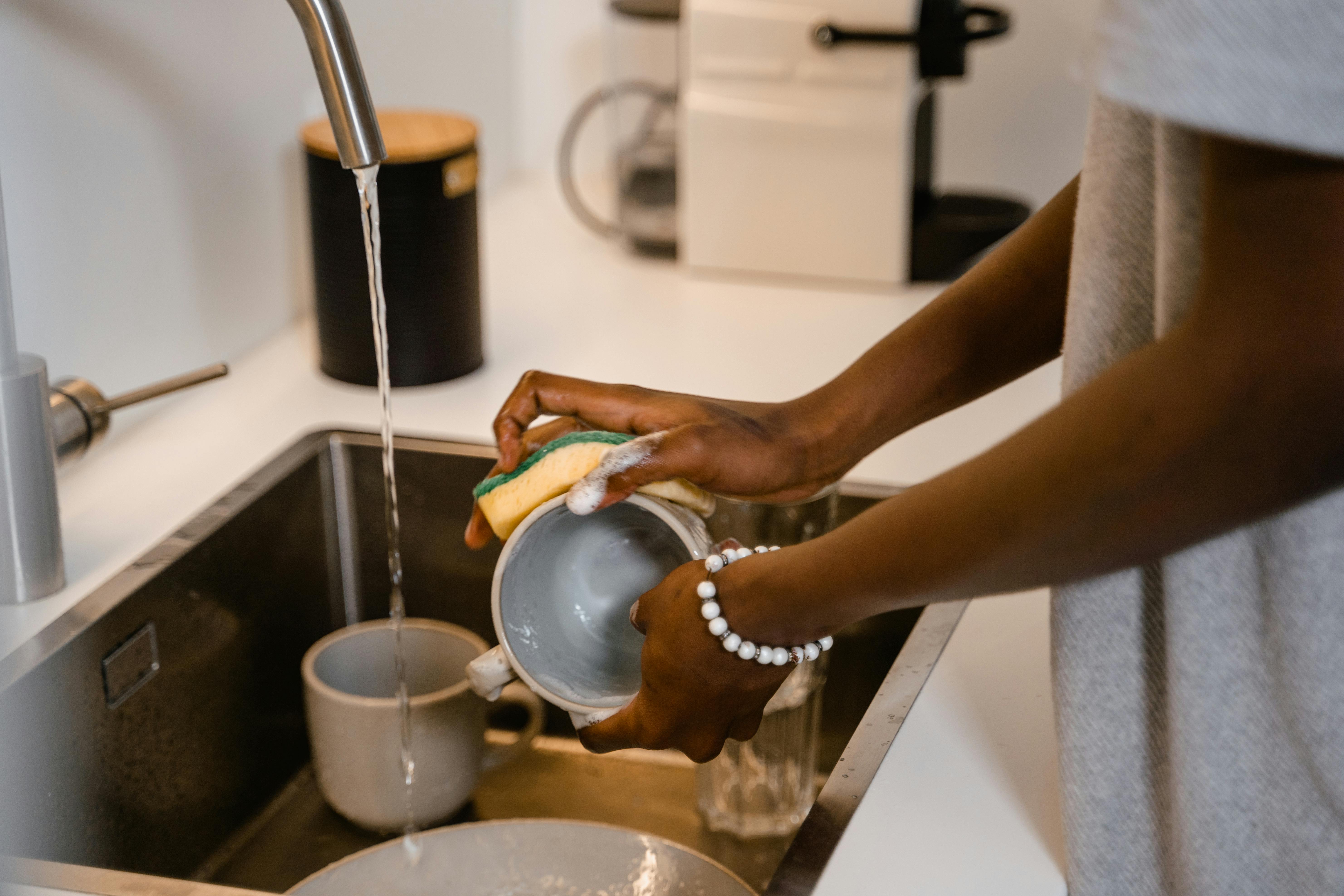
It's a common and responsible habit: immediately cleaning up after a meal. However, bending over the sink to do dishes, leaning to load the dishwasher, or constantly reaching for items can trigger reflux. Just like bending over to tie your shoes, these movements compress your abdomen and change your stomach’s position, making it easier for acid to flow upward. Instead of jumping straight into a chore, give your stomach some time to empty. Wait at least 30 minutes after eating before taking on tasks that require you to bend at the waist. A short break after a meal is not only a moment of relaxation but also a crucial step for healthy digestion.
45. The Hidden Impact of Chronic Throat Clearing

If you have a persistent need to clear your throat, you might be exacerbating your acid reflux without realizing it. The constant, forceful throat clearing puts a strain on the muscles surrounding your esophagus, which can weaken the valve that keeps acid in your stomach. This repetitive action can also pull stomach acid up into your throat, creating a vicious cycle where reflux causes a sensation that makes you want to clear your throat, and the clearing then makes the reflux worse. This is often a symptom of silent reflux (LPR), where a small amount of acid irritates the throat without causing the classic heartburn sensation. Breaking this habit and addressing the underlying cause can offer significant relief.
46. The Unseen Threat of Inadequate Fiber
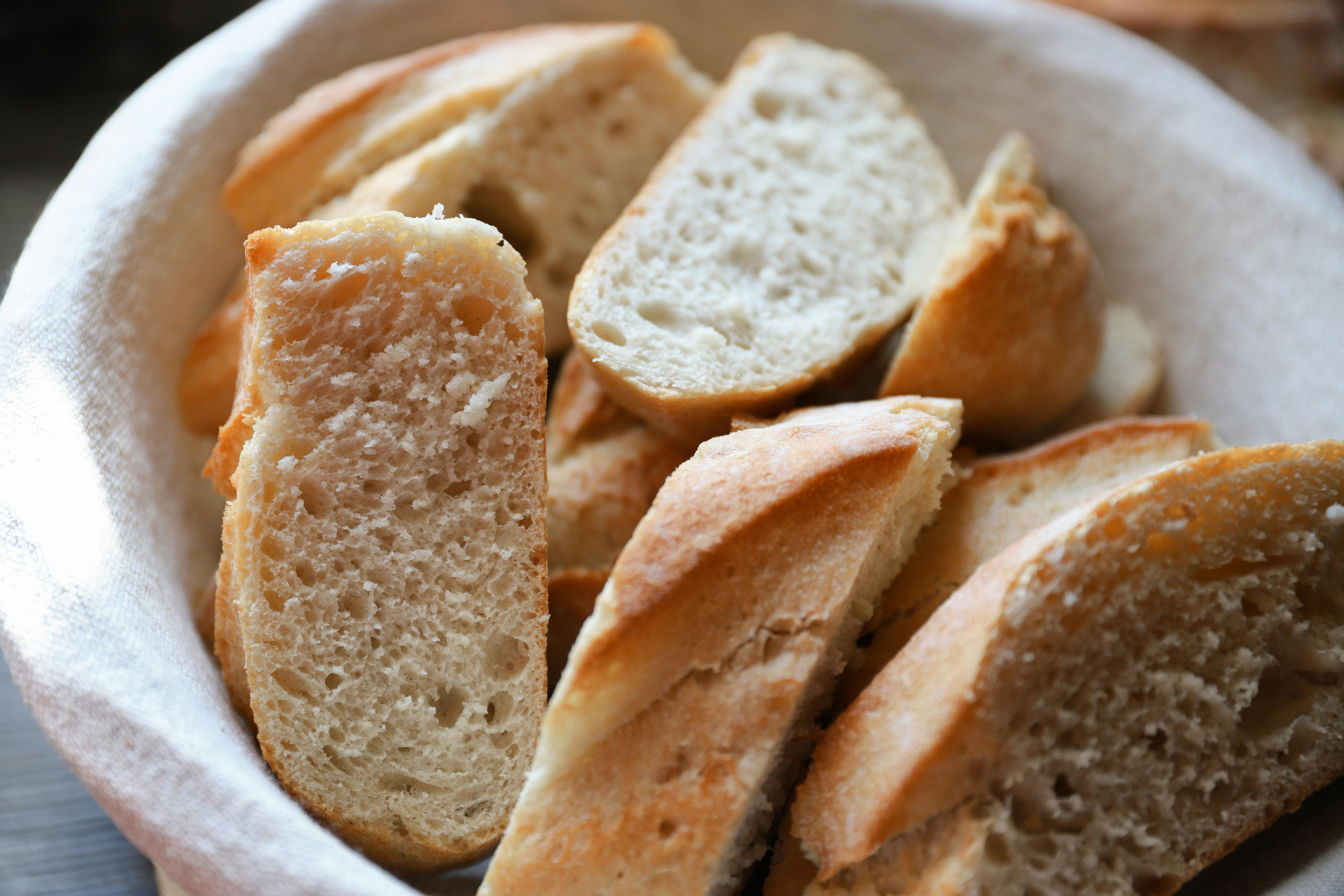
While you know which foods to avoid, it's also about what you're missing. A diet low in fiber can lead to constipation and a build-up of gas, which significantly increases abdominal pressure. This internal pressure is a major culprit in forcing stomach acid back up into your esophagus. Fiber-rich foods promote smooth and regular digestion, keeping your digestive system running efficiently and preventing the strain that leads to reflux. By ensuring your diet includes plenty of fruits, vegetables, and whole grains, you're not just improving your overall health, you're actively reducing the pressure that triggers heartburn.
47. The Silent Squeeze of Intense Emotions

Stress is a known trigger, but intense emotions like anger, anxiety, or fear can cause an acute, physical response that instantly affects your stomach. When you experience these strong feelings, your body enters a "fight-or-flight" state. This response diverts blood flow away from your digestive system, slowing down digestion and leaving food sitting in your stomach for longer. The resulting pressure and delayed emptying can easily force acid into your esophagus. Being mindful of these emotional triggers and practicing calming techniques can help prevent a sudden bout of heartburn.
48. The Surprising Culprit of Sugar-Free Gum

Chewing gum is already on your list, but some specific types are particularly problematic. Many sugar-free gums contain artificial sweeteners like sorbitol and xylitol. These sugar alcohols are difficult for the body to digest, especially in large quantities, and can ferment in your gut. This fermentation process produces excess gas and bloating, which increases pressure in your stomach and can force acid upward. If you are prone to reflux, it's a good idea to check the ingredients of your gum and opt for a brand that does not contain these sugar alcohols.
49. The Overlooked Role of Dehydration

While drinking too much water at once can cause reflux, not drinking enough throughout the day is a subtle but significant trigger. Your saliva is a powerful, natural buffer against stomach acid. When you are dehydrated, your saliva production decreases, leaving your esophagus with less protection against any acid that creeps up. Staying properly hydrated with small, frequent sips of water throughout the day ensures that your body has a healthy supply of saliva to neutralize acid and helps keep your digestive system running smoothly, preventing acid reflux.
50. High-Intensity Exercise on an Empty Stomach
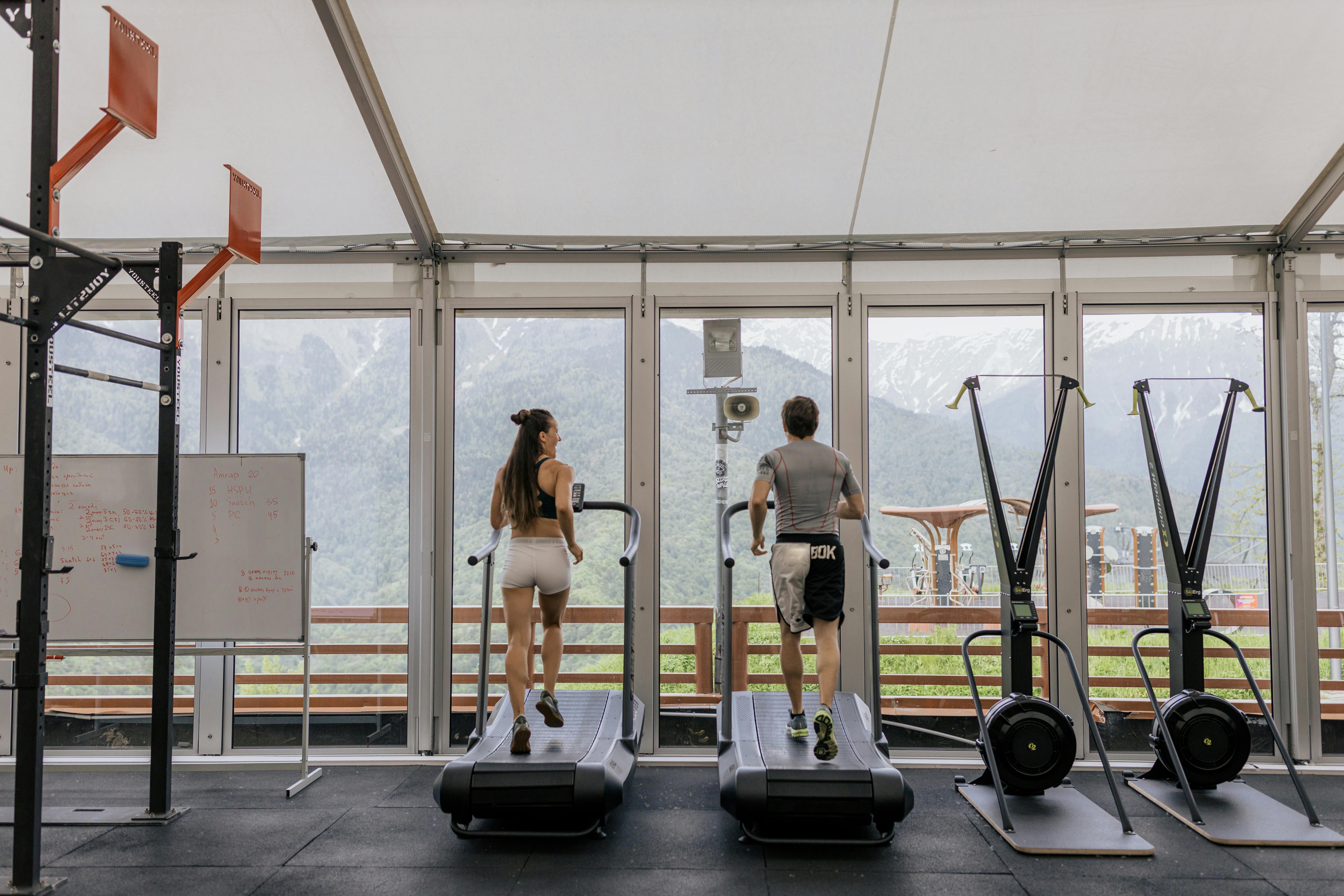
Your list mentions exercising too soon after eating, but the opposite can also be a problem. When you engage in a strenuous workout on an empty stomach, your body can experience a drop in blood sugar. This can sometimes cause the lower esophageal sphincter (LES) to relax, which can allow stomach acid to travel upward. Additionally, the vigorous movements of high-intensity exercise can jostle your stomach, even when it's empty. To avoid this, try having a small, easy-to-digest snack, like a banana, about 30 minutes before your workout.
51. The Right-Side Sleep Position Predicament

Your list mentions the benefits of left-side sleeping, but it's important to understand why sleeping on your right side is a significant trigger for acid reflux. When you lie on your right side, your stomach is positioned above your esophagus, allowing its contents to press against the lower esophageal sphincter (LES). Gravity then makes it easier for stomach acid to creep back up into the esophagus, especially after a meal. Conversely, sleeping on your left side keeps the stomach's contents below the LES. This small change can make a huge difference, using gravity to your advantage for a more peaceful night.
52. Taking Supplements on an Empty Stomach

It's a common morning habit: taking vitamins and supplements with just a sip of water. However, many common supplements—especially iron, calcium, and vitamin C—can be harsh on an empty stomach. They can irritate the stomach lining or stimulate acid production, which can lead to a reflux episode. This is a subtle trigger that people often don't connect to their heartburn. To prevent this, always take your supplements with a full glass of water and, if possible, with a meal. This helps buffer the stomach acid and ensures the pills don't sit undigested.
53. The Unseen Squeeze of a Shoulder Bag

While tight clothing is a known culprit, the way you carry your everyday bag can also be a hidden trigger. A heavy shoulder bag or purse that you wear on one side can cause your posture to shift, creating an uneven pressure on your abdomen. This constant, subtle squeeze can compress your stomach and force acid up into your esophagus. This is especially true if the bag's strap rests directly over your stomach or ribcage. To avoid this, try to carry a lighter bag or switch sides frequently to prevent a consistent, reflux-inducing squeeze.
54. Excessive Laughing or Crying

The forceful, repetitive motion of excessive laughing or crying can also trigger a reflux episode. Both actions create a powerful, jarring pressure on your abdominal muscles and stomach. This sudden internal pressure can easily push stomach acid up into your esophagus. This creates a vicious cycle where the reflux then causes a sensation that makes you want to laugh or cry more. Being mindful of these powerful emotions and their physical effects can help you mitigate the discomfort.
55. The Subtle Habit of Sipping from a Squeeze-Bottle

Sipping from a straw is on our list, but the modern sports bottle can be just as problematic. Squeezing a bottle to drink forces a stream of liquid out, often causing you to swallow more air with each gulp. This excess air accumulates in your stomach, increasing internal pressure and making it easier for acid to creep back up. To prevent this, try to drink from a regular cup or a bottle with a wider mouth that allows you to drink naturally without squeezing. A simple change in how you hydrate can dramatically reduce the gas and pressure that lead to heartburn.
56. The Overlooked Habit of Mouth Breathing
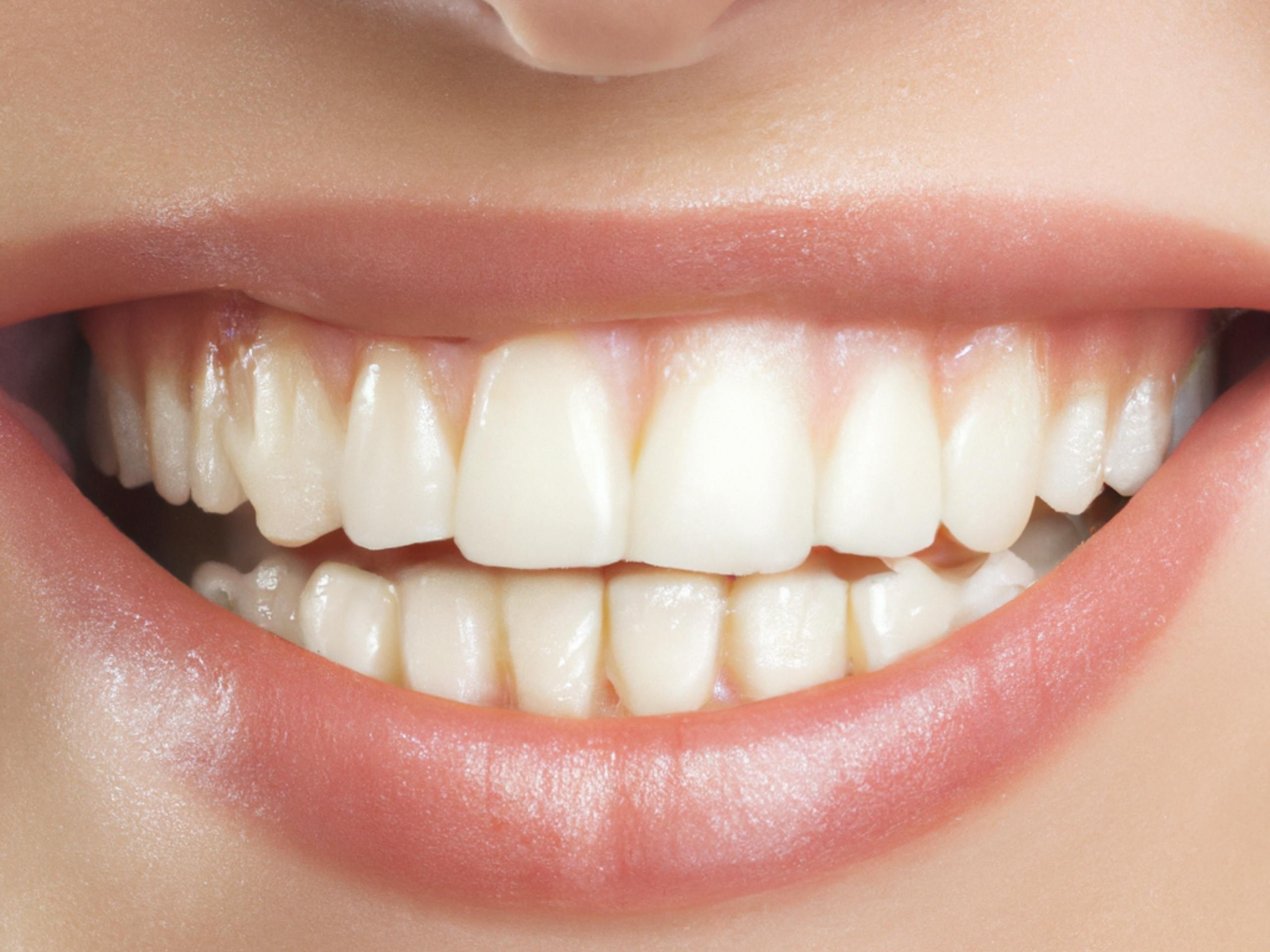
While our list mentions snoring, a more subtle culprit is simply breathing through your mouth, a habit many of us have, especially when sleeping or congested. When you breathe through your mouth, you swallow more air, which increases the pressure inside your stomach. This internal pressure can force acid back up into your esophagus. This habit also dries out your mouth, reducing saliva production. Saliva is a natural acid neutralizer, so a lack of it leaves your esophagus more vulnerable to irritation. Addressing nasal congestion or learning to breathe through your nose can be a game-changer for reflux.
57. The Unsuspecting Culprit: Your Cell Phone

Beyond the "tech neck" from hunching over, your cell phone itself can be a direct trigger for reflux. The blue light emitted from screens can disrupt your body's natural circadian rhythm, including the timing of your digestive processes. This can slow down digestion and leave food in your stomach for longer, increasing pressure and the likelihood of reflux. Additionally, using your phone in bed can disrupt sleep, and poor sleep is a known factor that can worsen reflux symptoms. To avoid this, try to put your phone away at least an hour before bed.
58. The Hidden Impact of Wearing a Watch or Bracelet Too Tightly
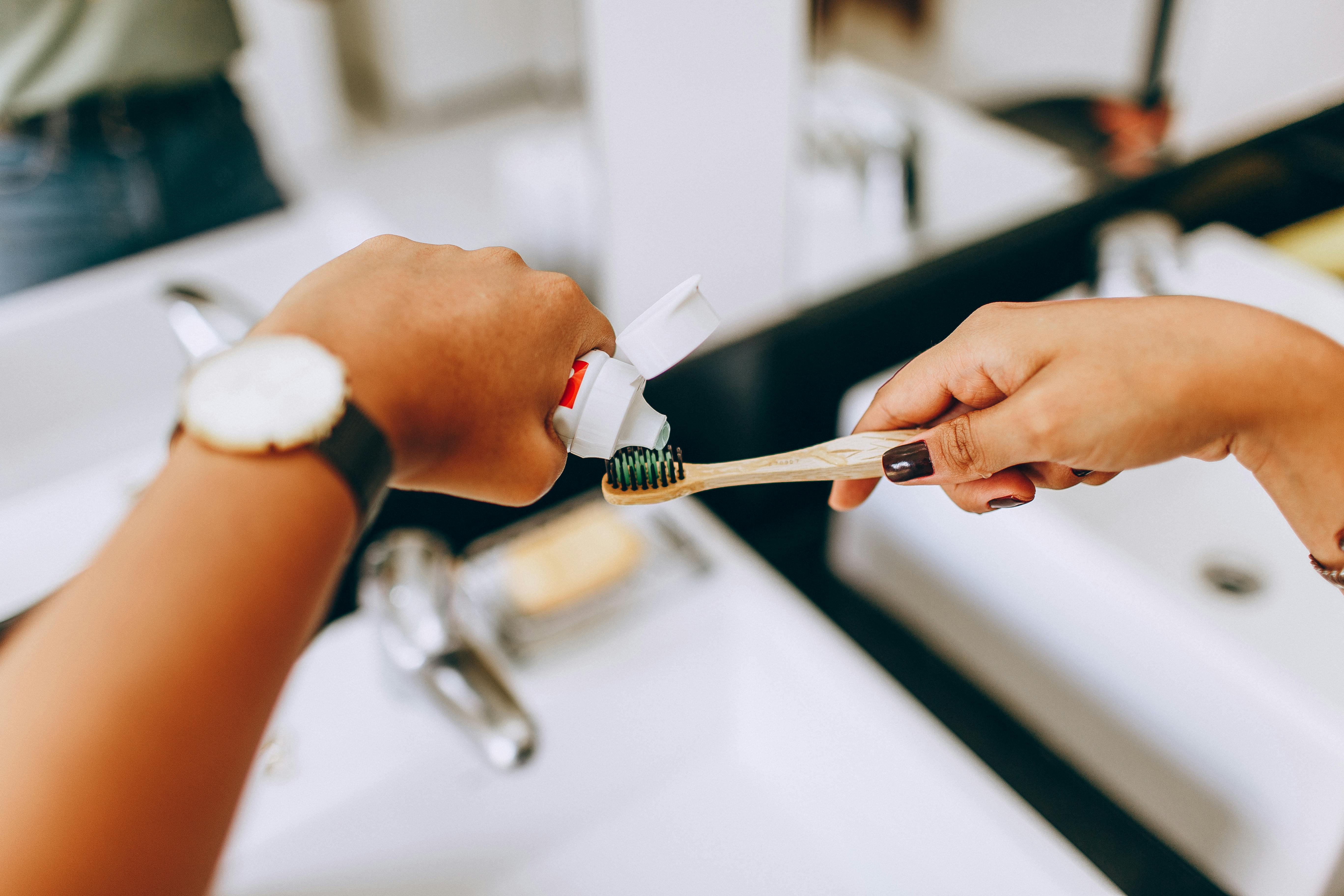
While our list mentions tight clothing and bras, even a tight watch or bracelet can contribute to reflux. When worn too tightly, they can put pressure on the acupressure point known as the Neiguan point (P6), located on your inner wrist. This point is often used in traditional medicine to alleviate nausea and indigestion, but consistent, intense pressure on it can sometimes disrupt the natural flow of energy in your digestive system, leading to a subtle imbalance that may trigger a reflux episode. To avoid this, ensure your watch or bracelet is not so tight that it leaves a deep indentation on your skin.
59. The Overlooked Influence of Cold Weather

Many people experience worse reflux symptoms in the winter, and it's not just from holiday feasts. The sudden change in temperature from a warm indoor environment to the cold outdoors can cause your body to constrict, particularly your muscles and blood vessels. This can put pressure on your abdomen and slow down your digestive system, leading to an increase in reflux. Additionally, the cold air can irritate your throat and lungs, which can lead to a cough that then exacerbates the reflux. Dressing warmly and staying indoors after eating can help prevent this surprising trigger.
60. The Subtle Habit of Grinding Your Teeth

While often associated with stress and anxiety, teeth grinding (bruxism), especially at night, can be a hidden cause of acid reflux. The constant clenching and grinding of your jaw puts pressure on the muscles in your head and neck, which can then affect the nerves and muscles in your esophagus. This can lead to a subtle but consistent relaxation of the lower esophageal sphincter (LES), making it easier for acid to escape. If you wake up with a sore jaw and have chronic heartburn, it may be a sign that your nighttime grinding is the culprit. Using a mouth guard at night can help alleviate this pressure and improve your reflux symptoms.
61. The Habit of Focused, Silent Reading (Digital Strain)

Intense, prolonged focus while silently reading—especially on a screen or while concentrating intensely—can surprisingly trigger reflux. When your eyes are locked in concentration, you often subconsciously reduce your blink rate and saliva production. Saliva is the esophagus's primary defense, constantly neutralizing acid. Furthermore, the lack of movement and the cognitive strain keep your nervous system in a quiet, high-alert state (low vagal tone). This sustained tension slows digestion and prevents the LES from functioning optimally. To counter this, take a 15-second eye break every 20 minutes and consciously sip water or chew sugar-free gum (without sugar alcohols) to maintain protective saliva flow.
62. Aggressive Tooth Brushing Post-Meal (Stomach Squeeze)

While good oral hygiene is essential, brushing your teeth aggressively or immediately after eating can be a hidden trigger for acid reflux. The forceful mechanical action of brushing, particularly vigorous strokes near the back of the mouth, can induce a subtle gag reflex or cause temporary pressure on the upper abdomen. This sudden pressure, combined with a full or active stomach, can easily push stomach contents and acid past a relaxed Lower Esophageal Sphincter (LES). To avoid this, wait at least 30 minutes after a meal before brushing, and use a soft-bristled toothbrush with gentle, non-aggressive strokes.
63. The Ice-Cold Drink Habit (Vascular Shock)
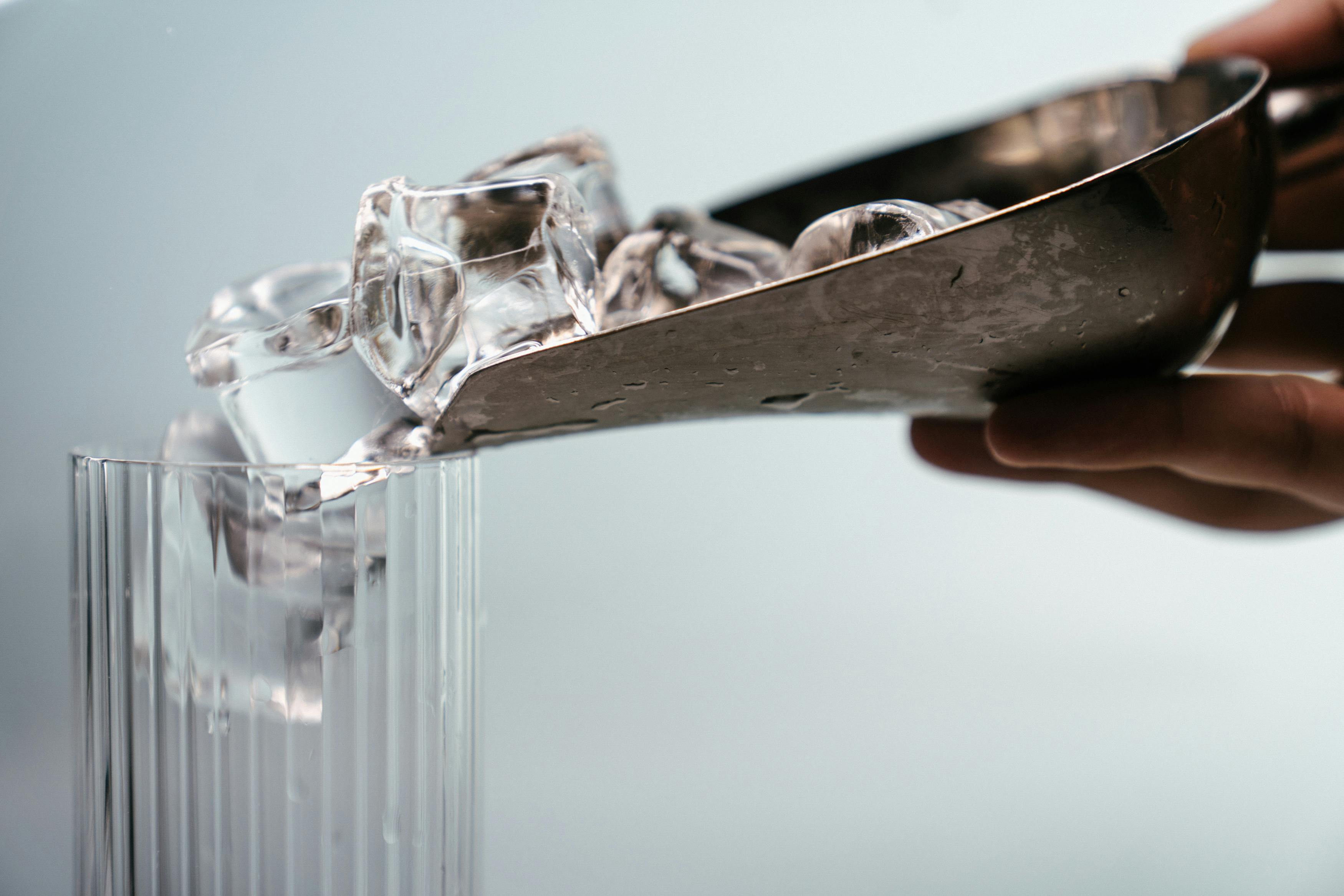
Regularly drinking ice-cold water or beverages can surprisingly trigger reflux by shocking the digestive system's internal mechanics. The sudden, extreme cold causes the blood vessels surrounding the esophagus and stomach to constrict (a physiological response called vasoconstriction). This sudden restriction of blood flow can temporarily paralyze or slow down the lower esophageal sphincter (LES), preventing it from clamping shut properly. Furthermore, this vascular shock can slow down overall digestive motility, leaving food in the stomach longer and increasing the chance that acid will creep back up. Switching to lukewarm or room-temperature beverages is an effortless, conscious choice that avoids this internal shock, allowing your LES and digestive muscles to function smoothly and efficiently.
Empowering Change for Better Digestive Health

Understanding the subtle ways everyday habits can ignite acid reflux empowers individuals to make informed lifestyle changes. By addressing factors such as posture, meal timing, stress, and dietary choices, people can significantly reduce their risk of experiencing acid reflux. Implementing these changes not only improves digestive health but also enhances overall well-being. As we unveil these surprising triggers and their solutions, we pave the way for a more comfortable and reflux-free life, encouraging a proactive approach to health management.
